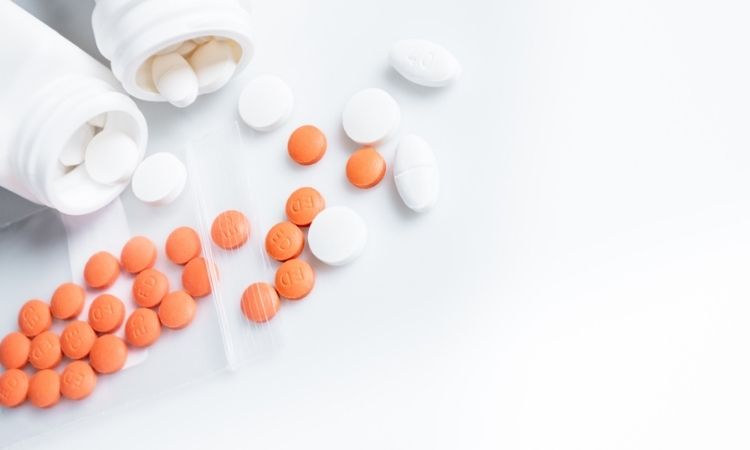
Detox is the process of removing toxins from the body or clearing the body of drugs and alcohol that an individual has consumed naturally. Detox can be one of the most fearful and difficult things an addict can go through. Some addicts may even be ready and eager to get treatment but scared to go because of the uncomfortable withdrawal symptoms that many drugs can cause. Detox can cause not only severe physical withdrawal symptoms but also mental and emotional withdrawal symptoms.
Withdrawal Symptoms During Detox Process
During the detox process, the body goes through withdrawal. Depending on what substance, how much, and for how long, the symptoms can vary. Some of the most common withdrawal symptoms for any substance can include:
- Nausea
- Vomiting
- Diarrhea
- Insomnia
- Muscle aches and pains
- Depression
- Anxiety
- Drug cravings
Detox is best done in a treatment center under the care of medically supervised professionals. Some substances can cause dangerous withdrawal symptoms, including life-threatening seizure activity. In a treatment center, the individual can be monitored closely and given medications to help wean the addict off any substances they are taking.
What Kind of Medications Are Used In Detox?
Detox is a necessary part of the recovery process. Upon entering a treatment program, the addict will have a thorough assessment done. This assessment will help the doctor determine which medications will be best for the person. The assessment will also help the treatment coordinator to develop an individualized treatment plan. The medications used to help in detox will be different for each person, depending on their substances. However, here are some of the most common medications used:
- Acamprosate or Campral is an FDA-approved medication used to treat alcoholism. This medication relieves the emotional and physical distress caused by alcoholism and reduces the urge to drink by preventing anxiety and depression.
- Naloxone or Vivitrol can be used with both opioid and alcohol detox. It blocks the receptors in the brain that produce the pleasurable effects of alcohol and opioids. In addition, this medication binds to the opioid receptors in the brain and reduces cravings.
- Disulfiram or Antabuse is the first medication that was approved for alcoholism. Antabuse will cause a person to get violently ill if they try to consume alcohol while taking it. In addition, it causes side effects like nausea and vomiting.
- Suboxone, Subutex, Buprenorphine, and Methadone are all medications used to help with opioid dependency. These medications are opioids, so they help reduce the withdrawal symptoms that opioids cause, along with cravings. All of these meds can be used both during and after the detox process. Some people will use them only during detox, but some choose to continue treatment much after.
- Antiadrenergic medications like clonidine and propranolol are often used to help with withdrawal from alcohol, opioids, and benzodiazepines. They help by inhibiting the signals of epinephrine and norepinephrine.
- Anticonvulsants like Depakote and Tegretol are used to help prevent seizures. They can also be used to stabilize mood.
- Antidepressants are often prescribed to help relieve depression and anxiety. Some common antidepressants used are Zoloft, Paxil, Prozac, Celexa, and Lexapro.
- Anti-nausea medications like Zofran can be used to help relieve nausea.
- Antipsychotics are used in detox when patients also have psychiatric issues. They can be used to treat bipolar disorders, schizophrenia, dementia, and other mental health issues. They can also be used to help anxiety and major agitation during withdrawal. Some of these medications include Risperdal, Seroquel, Ability, and Clozaril.
- Benzodiazepines can be used and are very helpful as long as the patient doesn’t have a history of benzodiazepine abuse or addiction. Benzodiazepines are tranquilizers and are used for the sedating effects. They are good for treating anxiety, panic disorders, panic attacks, seizures, and insomnia. Some common benzodiazepines are Lorazepam, Librium, Diazepam, Alprazolam, and chlordiazepoxide.
- Occasionally a medication called Modafinil may be used. This med is a wakefulness-promoting drug and is used for excessive sleepiness. It can also be used to help with severe cocaine addiction.
Other medications can be used to help with detox. Detox medications are used to help individuals get off of drugs and alcohol both safely and comfortably. In addition, reducing the withdrawal symptoms makes people more likely to remain abstinent and stay in treatment.
Overcome Addiction and Stay Sober at Riverwalk Recovery Center
Riverwalk Recovery Center understands how hard the recovery process can be. Recovery is a journey and not a destination. Our programs help people overcome addiction and mental health issues by helping them change their lifestyles. We have a team of compassionate and understanding professionals who are invested in your success. If you or someone you love is struggling with drug or alcohol addiction, give us a call and let our team help you.
